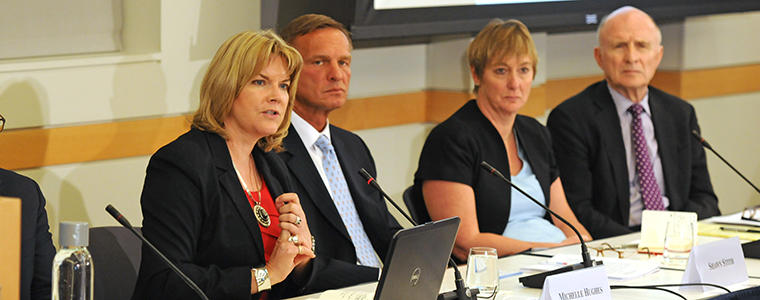The Future of Afghan Policing: Security after NATO Withdrawal
While much attention has focused on the Afghan National Army ‘s ability to secure the country after the withdrawal of NATO combat forces in 2014, the equally-important role of the police is frequently overlooked.

Huge investments by the international community to create the Afghan National Police (ANP) have had mixed results. Disagreements over what the police force should look like have led to the simultaneous development of multiple models. Now Afghanistan will need to take the lead in resolving this enduring dilemma and creating a professional law enforcement agency suitable for a democratic society. Planning for this transition is underway, but the challenge of transforming the interior ministry, which supervises the police, and the 157,000-member force is formidable. Among the most pressing issues is the future of the Afghan Local Police, a controversial, U.S.-trained local village defense force that does not have police powers, but reports to the interior ministry.
Recently, USIP has published two new reports – Counterinsurgency, Local Militias, and Statebuilding in Afghanistan and The Afghan National Police in 2015 and Beyond - that address the issue of planning for police transition and the future of the Afghan Police. On May 27, U.S. Institute of Peace held a public discussion with experts on the future of policing in Afghanistan. A panel of distinguished experts discussed the history of how the international community has tried to build the ANP and the future of policing in Afghanistan.
Speakers
Ali Jalali, Opening Remarks
Former Minister of the Interior of Afghanistan
Distinguished Professor, Near East South Asia Center for Strategic Studies
Ambassador Catherine Royle
Former Head, International Police Coordination Board Secretariat
Former Deputy Ambassador, UK Embassy, Kabul
Aziz Hakimi
Co-Author, Counterinsurgency, Local Militias, and Statebuilding in Afghanistan
PhD Candidate, Department of Development Studies, SOAS, University of London
Michelle Hughes
Author, The Afghan National Police in 2015 and Beyond
Founder, President, and Chief Executive Officer of VALRAC Innovation, LLC
Dr. Jonathan Goodhand
Co-Author, Counterinsurgency, Local Militias, and Statebuilding in Afghanistan
Professor, Department of Development Studies, SOAS, University of London
Shawn Stith
Former Director, International Security Assistance Force Ministry of Interior Ministerial Advisory Group



